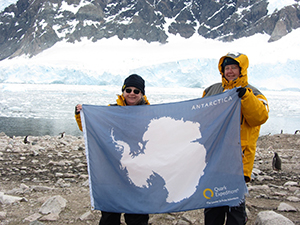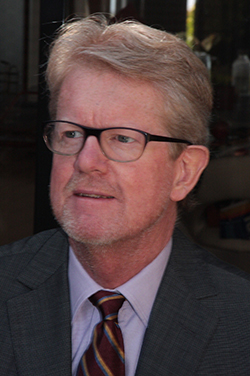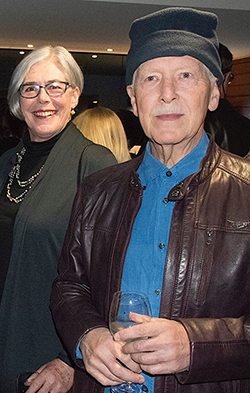Book Review - 'Your brain knows more than you think'

Your Brain Knows More Than You Think - the new frontiers of neuroplasticity
Niels Birbaumer (Scribe 262 pp)
Lamenting how society ascribes ‘immutability’ to our brains, psychologist and neurobiologist Niels Birbaumer sets out to explain how the latest brain-machine interface (BMI) technology can help address a range of severe conditions, and in so doing mounts a strong case against euthanasia.
While he may be just the latest author to explore neuroplasticity, “the virtually limitless capacity of the brain to remould itself,” he takes a different, i.e. more technological, tack to the likes of the great Norman Doige (The Brain that Changes Itself, and The Brain’s Way of Healing).
The main difference is the use of BMI, which in various forms creates a ‘neurofeedback’ loop in a series of steps, from the brain to MRI signal reception, thence brain-image transfer and signal analysis by computer program, transfer of processed brain activity to the BMI software and finally, feedback of blood flow in the brain.
- Details
- Written by: Robin Osborne
Read more: Book Review - 'Your brain knows more than you think'

Shackletons are aboard!
Antarctica has been on my bucket list for many years. Earlier this year I ticked that box.
After meeting the group in Buenos Aires we flew to Ushuaia, the main departure point for the Antarctic Peninsula. Our ship Ocean Endeavour took 199 passengers but was dwarfed by the Princess cruise liner moored across the dock, and another expedition ship still bigger than our own.
We set sail through the Beagle Passage, and rumours soon circulated that we had “Shackletons aboard”. Indeed, we did have some distant cousins of the famed Sir Ernest Shackleton, who were soon sharing stories of the great man’s exploits. The journey became infused with the Shackleton influence with several of our landings linked to the story of the miraculous rescue of his crew from the Endurance.
One of our landing groups was named ‘Shackleton’, the others ‘Crean’, ‘Worsley’ and ‘Wild’ in recognition of some of his team.
- Details
- Written by: Dr Ruth Tinker

A letter to my colleagues
Life takes many turns, for us, just as for our patients. Wellness for most is a fleeting state, punctuated by crises of varying impact on ourselves and those we love.
When a busy life had been slowly curtailed by years of ongoing fatigue I was more puzzled than distressed. I was frustrated by not being able to ‘keep up’, but accepting that, for whatever reason, this was how it had to be. Little doubt you can imagine that I struggled through with ‘eczema’ being pitched as a primary cause. Four years on from an initial eczema diagnosis, and after more than one ‘opinion’, a skin biopsy revealed that there was a little more to this malady that had largely taken over my life. Suddenly I was confronted with the potential reality of a rare, rapidly progressive lymphoma.
‘Rare’ however comes with myriad implications. The first was the question: where might a pathologist be found who would make a call on the histology? And to think we all regard the radiologist’s emblem as a fence depicted suitably encircled by the obligatory ‘Latin’? Indeed, it was exactly so for a pathological opinion. But it didn’t end there. Where next to find expert haematological assessment and ongoing care?
- Details
- Written by: Dr Ian McPhee

The ‘No’ case for euthanasia
Politicians in two main states are working to legalise euthanasia under defined guidelines, but it’s doctors who would have to implement their policies. Dr Jane Barker discusses her reasons for opposing physician assisted suicide.
As we will be the ones expected to write the scripts, administer the medications and make the final decision within the boundaries of the law, the euthanasia debate is our debate, yet we have not adequately engaged in it. How will we respond if pressurised by patients or family members, or accused of lacking in compassion?
By definition, physician assisted suicide (PAS) is a medical issue, but the question of whether we as a group, or as individuals, wish to play this role, and the regulatory parameters, has not been fully discussed with us.
Legalising euthanasia
Last week a bill supporting physician assisted suicide was passed in the Victorian State lower house. It will now go for debate in the Victorian Senate. NSW is also preparing to debate the subject.
- Details
- Written by: Dr Jane Barker

Cracking the wayward walnut
Not the normal phone call. As part of general preparations for my seventh decade, I'd decided on 21 November to have routine blood tests done, and the usual response from my GP to the annual check up results in the past has been, "Same old...if all my patients were like you I'd be out of business".
I ran a lot, ate well, went to the gym, and drank good wine occasionally.
But this time it was different: "You should come in, we need to talk".
In his rooms the doctor added, "Everything else is great, however you have an elevated PSA level". He smiled, but seemed cautious.
"In fact, it is substantially elevated".
He was being helpful, but tentative. "In the past it has been 0.5 to 0.9, but this result is 44".
Not good, obviously.
"There may be a number of explanations, but you should be aware that the PSA level is often used to detect early signs of cancer".
- Details
- Written by: Zbys Klich
Page 102 of 177















